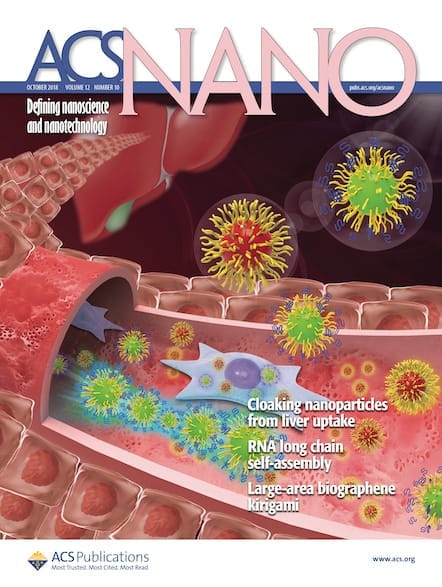ACS has long been at the forefront of scientific research by publishing high-quality work that encourages conversation and innovation between researchers and disciplines. This influence was on display at the sixth International Conference on Nanoscience and Technology, China 2015 (ChinaNANO 2015), one of the largest nanoscience conferences in the world. Held September 3-5 in Beijing, […]

ACS has long been at the forefront of scientific research by publishing high-quality work that encourages conversation and innovation between researchers and disciplines.
This influence was on display at the sixth International Conference on Nanoscience and Technology, China 2015 (ChinaNANO 2015), one of the largest nanoscience conferences in the world. Held September 3-5 in Beijing, ChinaNANO 2015 attracted approximately 1,300 registrants and offered an international stage for groundbreaking research in the fields of nanoscience and nanotechnology.
Editors from ACS Nano and Chemistry of Materials maintained a highly visible presence at the conference by participating in the Directors’ Forum, a gathering of nanoscience research center directors from around the world. This select group of renowned researchers met before the conference started to share their experiences, goals, and challenges and to discuss the future of the field. In addition, six ACS Nano editors delivered session keynotes and one served as an invited speaker.
“We represent high-quality research, and we had very esteemed editors at the conference,” says Feng Chen, assistant director of the Editorial Development Department. “All of this speaks to the international reputations of our editors and the global presence of ACS.”
Awards presentations highlight established and emerging researchers
This year, ACS Nano also partnered with ChinaNano 2015 to hold the ACS Nano Lectureship Awards and ACS Nano Poster Award presentations during the conference.
This year’s winners are Prof. Hua Zhang for the Asia/Pacific region, Prof. Peidong Yang for the Americas, and Prof. Maurizio Prato for the Europe/Africa/Middle East region. The three awardees were invited to present on their research and to each invite one guest speaker to give a talk during the special lectureship session. Prato and Zhang have additionally contributed special Perspectives to ACS Nano.
The ACS Nano poster awards were also presented to the top three posters from the conference. Posters were judged according to excellence in science, novelty, and overall presentation, with the awards going to Jing Cao, Hui Zhao, and Kerui Li.
“The poster awards help to recognize some of the up-and-coming scientists in the field,” says Heather Tierney, managing editor for ACS Nano.
Outreach efforts reinforce high-level connections
ChinaNANO 2015 provided other avenues for outreach, as well. Following the conference, Chen toured leading research institutions in the region to gain a greater understanding of student and researcher needs and to share ACS’ readiness to work with them.
“We have such a highly visible platform, and publishing with us validates researchers’ work,” says Chen. “From our perspective, we want to attract as many of these cutting edge researchers as possible from the international community.”
In her travels, Chen also emphasized ACS’ position to foster opportunities for collaboration among international researchers. “There are dual roles that ACS could offer: To facilitate the exchange of scientific information and to promote the interaction of scientists around the world to create more opportunities for collaboration and success,” she notes.
Taking the fullest advantage of opportunities like these strengthens the platforms for publishing and participation that ACS offers researchers around the world.
